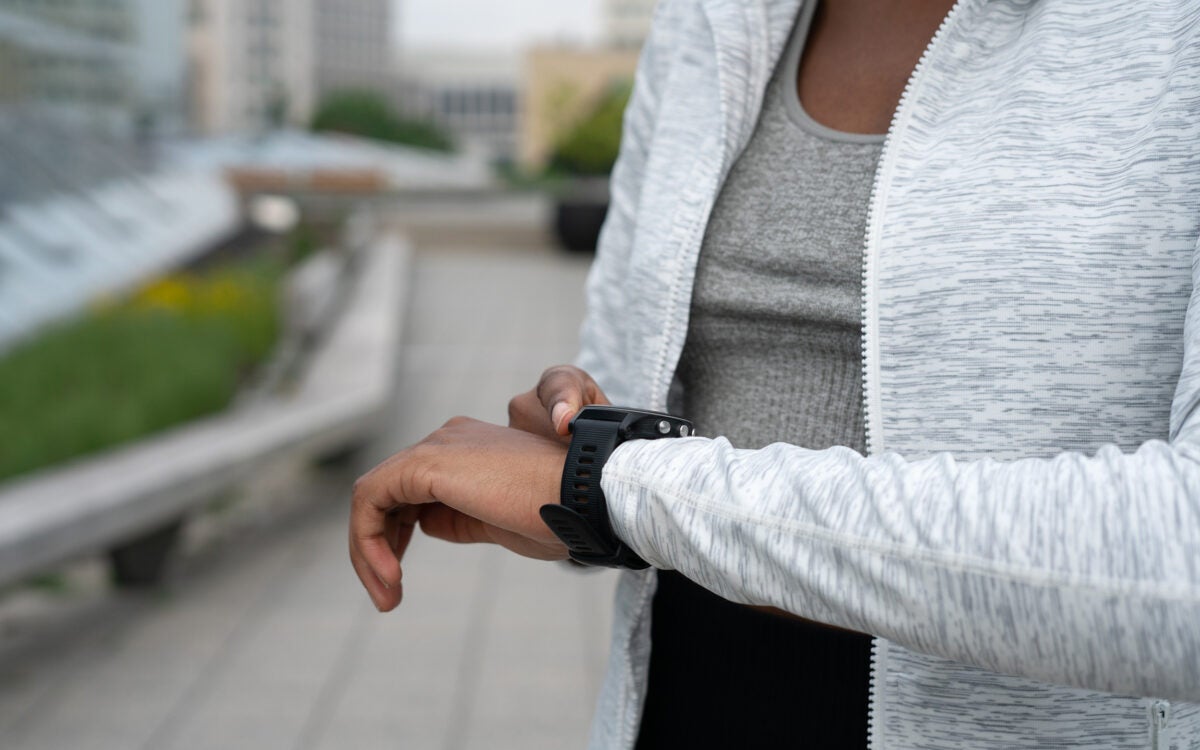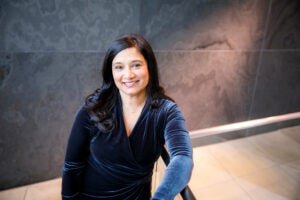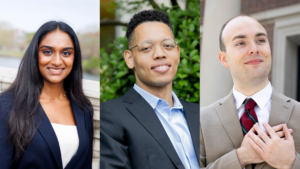Tag: Science
-
Science & Tech
Biohybrid of elastic film and muscle cells packs a punch
In an innovative marriage of living cells and a synthetic substrate, bioengineers at Harvard University have found that a rubberlike, elastic film coated with a single layer of cardiac muscle cells can semi-autonomously engage in lifelike gripping, pumping, walking, and swimming.
-
Health
Primates expect others to act rationally
When trying to understand someone’s intentions, nonhuman primates expect others to act rationally by performing the most appropriate action allowed by the environment, according to a new study by researchers…
-
Arts & Culture
New research challenges previous knowledge about the origins of urbanization
Ancient cities arose not by decree from a centralized political power, as was previously widely believed, but as the outgrowth of decisions made by smaller groups or individuals, according to a new study from researchers at Harvard University, the University of Cambridge, and the University of Edinburgh.
-
Health
Scientists have something to chew on
In a groundbreaking study, two Harvard scientists have for the first time extracted human DNA from ancient artifacts. The work potentially opens up a new universe of sources for ancient genetic material, which is used to map human migrations in prehistoric times.
-
Science & Tech
Creating a computer currency
Computer scientists are using the latest version of peer-to-peer video sharing software to explore a next-generation electronic commerce model that uses bandwidth as a global currency.
-
Health
First orchid fossil puts showy blooms at some 80 million years old
Biologists at Harvard University have identified the ancient fossilized remains of a pollen-bearing bee as the first hint of orchids in the fossil record, a find they say suggests orchids are old enough to have coexisted with dinosaurs.
-
Health
Brain implants relieve Alzheimer’s damage
Genetically engineered cells implanted in mice have cleared away toxic plaques associated with Alzheimer’s disease.
-
Campus & Community
Wagers named ‘Distinguished Young Scholar in Medical Research’
Assistant Professor of Pathology Amy Wagers of the Harvard-affiliated Joslin Diabetes Center has been named to the W.M. Keck Foundation’s 2007 class of Distinguished Young Scholars in Medical Research.
-
Campus & Community
Young scientists do summer research
During this short hot summer, approximately 120 undergraduate scientists spent more time on the laboratory bench than at the local beach. These fledgling biologists, chemists, and engineers were participating fellows in the Harvard College Program for Research in Science and Engineering (PRISE).
-
Health
Man-made medical mystery gets second solution
Researchers have created a new material that they believe improves on an eight-year-old solution to a decades-long medical mystery over the cause of widespread artificial joint failure. The new material, developed at Harvard-affiliated Massachusetts General Hospital (MGH) and implanted for the first time July 19, could help fill the demand for higher-performance joints from a…
-
Health
Human stem cells help monkeys recover from Parkinson’s
Richard Sidman, Bullard Professor of Neuropathology Emeritus at Harvard Medical School (HMS), and colleagues from Harvard and other universities and medical schools published the first report of a promising attempt to treat Parkinson’s in a humanlike animal in the July 17 issue of the Proceedings of the National Academy of Sciences.
-
Campus & Community
Provost Hyman names Buckley, Porter top administrators for HUSEC
Harvard University Provost Steven E. Hyman has selected two individuals with both broad and deep experience in Harvard science administration to provide administrative leadership and structure for the newly created Harvard University Science and Engineering Committee (HUSEC).
-
Health
New science provides compelling framework for early childhood investment
A remarkable convergence of new knowledge about the developing brain, the human genome, and the extent to which early childhood experiences influence later learning, behavior, and health now offers policymakers an exceptional opportunity to change the life prospects of vulnerable young children, says a new report from the Center on the Developing Child at Harvard…
-
Health
Sensory organ differentiates male/female behavior in some mammals
For years, scientists have searched in vain for slivers of the brain that might drive the dramatic differences between male and female behavior. Now biologists at Harvard University say these efforts may have fallen flat because such differences may not arise in the brain at all.
-
Health
Broken hearts found to mend themselves
Stem cells apparently try to mend hearts damaged by heart attacks or high blood pressure. But they do not refresh hearts run down by aging. Evidence for this heartening and disheartening news comes from experiments with mice done at Harvard Medical School (HMS) and Brigham and Women’s Hospital in Boston.
-
Health
Youngest girls spirited to brothels show highest HIV rates
Girls forced into the Indian sex trade at age 14 or younger show significantly higher rates of HIV infection than older girls and women similarly forced into prostitution, according to a new study that highlights for the first time the increased HIV risks faced by sex trafficked Nepalese girls and women.
-
Campus & Community
Eggleston’s formula: Hard science and the joy of art
As a toddler, Sarah Skye Eggleston ’07 of Quincy House wore a Harvard jumpsuit — the stuff of parental dreams. It worked.
-
Campus & Community
Viviany Taqueti: Writer, doctor, public servant
As a young girl, Viviany Taqueti followed her doctor father as he made rounds in the two hospitals he built in the jungles of Brazil. Sitting on the banks of the muddy, mighty Amazon River, Taqueti decided that she wanted to be like him, a person who improves the lives of others and who believes…
-
Science & Tech
Single spinning nuclei in diamond offer a stable quantum computing building block
Surmounting several distinct hurdles to quantum computing, physicists at Harvard University have found that individual carbon-13 atoms in a diamond lattice can be manipulated with extraordinary precision to create stable quantum mechanical memory and a small quantum processor, also known as a quantum register, operating at room temperature. The finding brings the futuristic technology of…
-
Health
Red wine, taken in moderation, reduces risk of prostate cancer
Men who drink moderate amounts of red wine are only half as likely to be diagnosed with prostate cancer as those who don’t drink it at all, according to a report in the June issue of Harvard Men’s Health Letter. What’s more, the beverage seems to be especially protective against the most advanced and aggressive…
-
Health
Major progress toward cell reprogramming; researchers approach key goal of biologists
Two Harvard Stem Cell Institute (HSCI) researchers and scientists at Whitehead Institute and Japan’s Kyoto University have independently taken major steps toward discovering ways to reprogram cells in order to direct their development – a key goal in developmental biology and regenerative medicine.
-
Campus & Community
Honorary degrees awarded at Commencement’s Morning Exercises
Six men and three women received honorary degrees at this morning’s 356th Commencement Exercises. Biographical sketches of the honorands appear below.
-
Campus & Community
Radhika Nagpal nets prestigious NSF award for up-and-coming researchers
Radhika Nagpal, assistant professor of computer science in Harvard’s School of Engineering and Applied Sciences (SEAS), has won a Faculty Early Career Development Award from the National Science Foundation (NSF). The honor is considered one of the most prestigious for up-and-coming researchers in science and engineering.
-
Nation & World
Women in science: Good news, bad news
It is the best of times, and it is the worst of times. At Harvard’s fourth National Symposium on the Advancement of Women in Science, it was clear why female scientists need to keep meeting like this.
-
Health
When fish first started biting
Before fish began to invade land, about 365 million years ago, they had some big problems to solve. They needed to come up with new ways to move, breathe, and eat.
-
Health
Researchers develop ALS mouse stem cell line
A team of Harvard researchers has used embryonic stem cells, derived from mice carrying a human gene known to cause a form of amyotrophic lateral sclerosis (ALS), to create an in vitro model of the always-fatal neurodegenerative disease.
-
Arts & Culture
Archaeological bookends in Copán Valley
COPÁN RUINAS, Honduras – A short drive from the main Maya ruins at Copán, a forested hillside holds a cluster of mounds that Peabody Museum archaeologists believe date from near the end of the great Maya civilization that once dominated the region.
-
Campus & Community
Albert Szabo
Albert Szabo was born in 1925 in New York City and grew up in a household where design mattered, his father being a pattern maker for the renowned dress designer Claire McCardell. Albert studied science, then fine arts at Brooklyn College between 1942 and 1947, with an interruption for military service as an aviation cadet.…
-
Campus & Community
Frank H. Westheimer, major figure in 20th century chemistry, dies at 95
Frank H. Westheimer, Morris Loeb Professor of Chemistry Emeritus, at Harvard University and one of the key figures in 20th century chemistry, died at his home in Cambridge, Mass., on April 14. He was 95.
-
Health
Humans hot, sweaty, natural-born runners
Hairless, clawless, and largely weaponless, ancient humans used the unlikely combination of sweatiness and relentlessness to gain the upper hand over their faster, stronger, generally more dangerous animal prey, Harvard Anthropology Professor Daniel Lieberman said Thursday (April 12).


